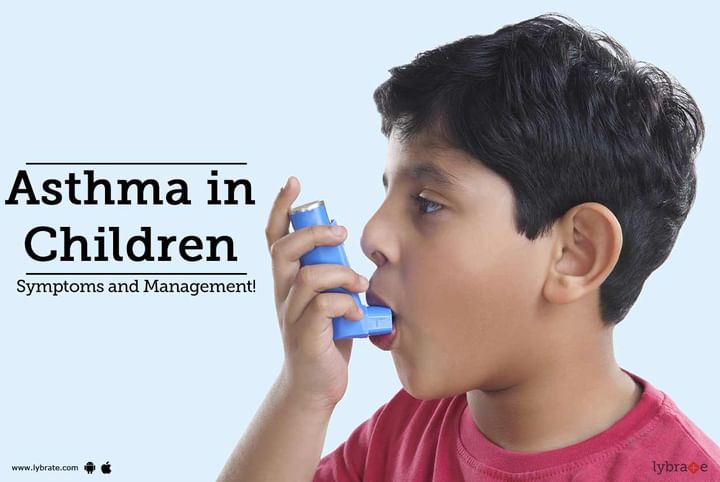Asthma in Children - Symptoms and Management!
Asthma, as known to most, is a chronic respiratory condition characterized by swelling and narrowing of the airways with an increased mucus production. The condition can affect children as well adults. However, it is quite disturbing to see that asthma among children is on a mercurial rise. In many cases, children below the age of 5 years seem to be at the receiving end, complicating the things further. What is worse, being so small, some children are not even aware of their condition.
Recognising the Symptoms in Children
There may be a myriad of symptoms that could be an indication of asthma in children. However, not all children will exhibit similar symptoms.
- A child may cough uncontrollably, especially while laughing, crying, playing or even at night (a night cough).
- Wheezing is also common in such children. One may also complain of chest tightness.
- Breathing troubles such as breathlessness or shortness of breath may be seen in some children.
- The child may feel weak and tired.
- The chest and the neck muscles also appear to be tightened.
- Many children are found to often suffer from cold resulting in a chest congestion.
In some children with asthma, coughing may be the only associated symptom, a condition known as Cough-Variant Asthma.
Factors that increase the risk of asthma in children
- Increased exposure to smoke. The exposure can be before or even after birth.
- Some children may suffer from hay fever, a kind of nasal allergy that often results in an asthmatic reaction. Eczema can also act as a potential trigger.
- Necessary precautions (as much as possible) should be taken for children who have a family history of asthma. Those with a family history of allergies also need to be careful.
- Asthma may affect children with low birth weight as well as those with respiratory infections.
Self-Management
There is no denying the fact that a child with asthma should be under medical supervision with proper treatment. However, self-management can prove to be equally effective to keep asthma under control.
- As we all know asthma can be quite unpredictable, affecting the child at any point in time, always keep the medications and the inhaler handy.
- It is always advisable to use a mask (especially those suffering from nasal allergies).
- Get the child well vaccinated especially with the flu vaccination (the yearly vaccination).
- There are various factors (pollens, dust, cold, to name a few) that trigger an asthmatic reaction in a child. Identify the triggers and work towards keeping the child away from them as much as possible.
- The most important point, be in regular touch with the attending physician and keep an update on the condition.
- For school going children, the teachers and the school authorities should be informed about child's condition.
- Never panic in front of the child even in the case of an extreme and severe flare-up.
In case you have a concern or query you can always consult an expert & get answers to your questions!



+1.svg)
